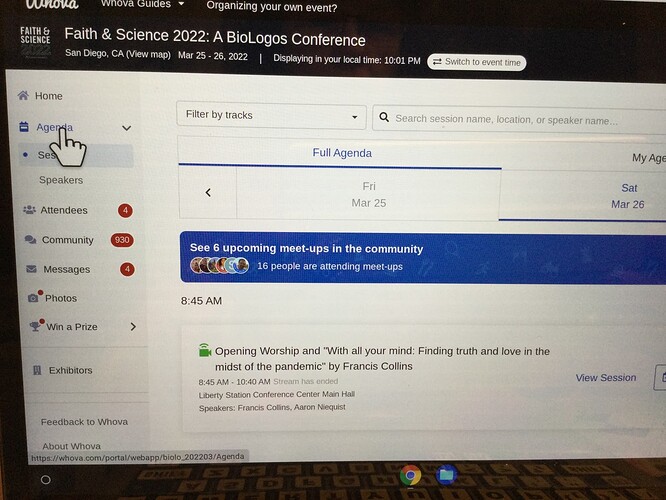Oldest Kid was home from college this weekend, and I’d been saving the “Disability, Dignity and The Image of God” session to watch with her and Youngest Kid, since they both have interest. Here are a few (edited for clarity) quotes that I found powerful:
We realize that if you’re not part of the disability community now, if you live long enough, at some point you will become a part of that community.
Talking with my mom, who will soon be 89, I see that she never considered this reality. I suspect, because, at my age, she really had never seen anything like the numbers of people who live to be older now. At that time, someone her (current) age was really exceptional. My generation is faced constantly with the reality of this statement, however.
The Social Model of disability does not view disability simply as an impairment to be managed by medical intervention but rather a more complex understanding of the ways in which society’s narratives about disability are more disabling than the actual biological impairment…
We no longer hide away most people with disabilities in “special” schools and institutions. But we don’t have good skills to make sure “everyone is included.” Our short-sightedness can actually make things worse.
The Social Model helps us to understand that there is a social component in addition to perhaps some of the medical and physical components. The challenge of being disabled is a challenge that requires whole scale societal and environmental changes. The management of disability is a social responsibility and therefore should be seen as an issue of human dignity and human rights. … So for churches and faith communities and faith-based organizations this means including disability in our discussions about diversity, dignity and justice.
I have much to say on this, that I will spare you from. In short, though, I will say, “Right on!”
Churches that I consult with [ask about ways] to create long lasting and systemic change. [The best way] is to find ways to place persons with disabilities and their families in positions of real leadership in the church. [Y]ou can often tell an organization’s commitment to diversity by whom it allows to lead. [O]ne of the things that we often see in the church is we want to do ministry for persons with disabilities and we have lacked the creative imagination to do ministry with persons with disabilities. [S]ome of the barriers that continue to exist in the church are because … ideas of what church should look like and feel like and sound like were constructed…by all the same type of minds. … You have persons with [disabilities] at the table and those persons will help you reshape and reimagine what church and what ministry should look like.
This part is key, and it doesn’t only apply to the matter of persons with disabilities. Any true open society’s leadership must fully reflect the diversity of that society. Otherwise we are simply maintaining power structures and “managing” the other.
![]()
